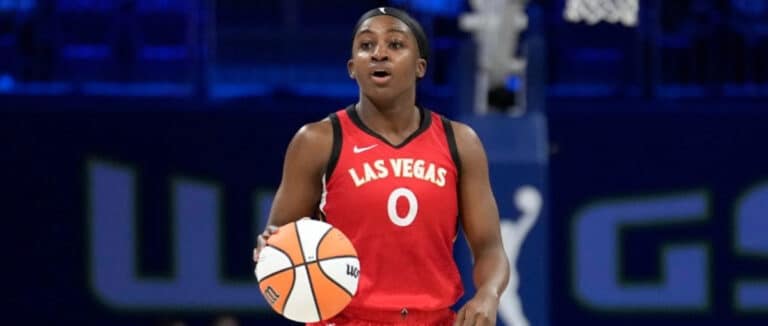Analyzing Historical Data for Betting Trends and Patterns


As sports bettors, every chance we get to gain an edge is an opportunity to cash in some bets and boost our bankroll. Fortunately, there are some ways we can capitalize on this and score big.
We’ll take a look at how leveraging historical data can significantly improve your sports betting strategy.
Understanding the Power of Historical Data in Sports Betting
It’s easy to look at the odds and the lines to decide who to bet on, but if you want to win, you have to look a little deeper.
Historical Data is your Betting Compass
Historical data in sports betting is like a compass guiding a ship.
It provides invaluable insights into past games, player performance, team dynamics, and more.
By analyzing this data, bettors can identify trends and patterns that are likely to repeat. This approach transforms betting from a game of chance to a more calculated decision-making process.
We use a plethora of sources for this information, and here are some of the best—
- Official Sports Leagues and Organizations (e.g., NBA, NFL, MLB). They provide comprehensive historical data on games, player stats, and team performances.
- Sports Data Providers (e.g., Sportradar, Stats Perform). These companies specialize in collecting and distributing sports data, including historical data for betting.
- Online Sports Betting Platforms (e.g., Bet365, DraftKings). They often have historical data available for bettors, particularly on past odds and outcomes.
- Sports Analytics Websites (e.g., Pro-Football-Reference, Basketball-Reference). These sites offer detailed historical statistics and data analysis for various sports.
Pattern Recognition
Start by focusing on specific leagues or sports where you’re most knowledgeable.
Gather data on past seasons, looking for patterns in scores, player performance, and team wins.
For example, a basketball team might consistently perform better at home, or a football player may have a track record of excelling under certain weather conditions.
We recommend only going back a season or two because players change out. A good rule of thumb is if over 70% of the team is the same, the past seasons should be an indicator.
If it’s less than that, chances are that the team is in a rebuilding year, and the data might not be as valuable.
Leveraging Statistical Tools for Analysis
These are some advanced methods for breaking down historical data.
The Role of Statistical Analysis Tools
Modern statistical tools have revolutionized how we analyze sports data.
They allow you to crunch large datasets, identify statistical anomalies, and even predict future outcomes based on past trends.
Of course, this is a bit more advanced compared to other methods, but if you’re taking your sports betting seriously, this is the way to go.
Some sports bettors even make their own elaborate spreadsheets to track historical information so it makes sense to them.
Utilize Predictive Models
Consider using predictive models that incorporate various data points like player statistics, weather conditions, and historical matchups.
These models can forecast game outcomes more accurately than traditional betting methods. When you’re using one of these, you’re about as professional of a sports bettor as you can get.
- Linear Regression Models. These models predict outcomes (like scores or wins) based on linear relationships between variables (e.g., team stats and player performance).
- Logistic Regression Models. Used for binary outcomes (win/lose), these models estimate the probability of an event occurring based on input variables.
- Time Series Analysis. This approach analyzes data points collected over time (like player performance throughout a season) to forecast future events in sports. This is the most basic of the models.
- Machine Learning Algorithms (e.g., Neural Networks, Random Forest). These complex models learn patterns from vast datasets and make predictions based on known data. They adapt to new data and improve over time.
- Monte Carlo Simulations. This method uses random sampling and statistical modeling to predict the probability of different outcomes in a game.
- Elo Ratings System. Originally for chess, this system calculates the relative skill levels of players/teams and predicts the outcome of a match based on those ratings.
- Poisson Distribution. Specifically useful in predicting the number of goals/points in a game, this statistical approach calculates the probability of a number of events happening in a fixed period.
- Bayesian Networks. These models use Bayes’ Theorem to update the likelihood of a hypothesis as more evidence or information becomes available.
Emotional Bias vs. Data-Driven Decisions
We can write entire posts based on emotional bias, but we’ll touch on it briefly.
Avoiding Emotional Bias
A common pitfall in sports betting is letting emotions cloud judgment. It happens to all of us, but if you can overcome it, you’re in luck.
Historical data helps in making objective, data-driven decisions rather than relying on personal biases or team loyalties.
Actionable Idea: Trust the Numbers
When your favorite team is playing, check the historical data before placing a bet.
If the data suggests a low probability of winning, it might be wise to reconsider your bet, no matter how much you support the team.
This is tough. In fact, if the numbers don’t support my favorite teams, I won’t bet on the game because I’ve found it too difficult to bet against my teams.
Understanding the Context
Just because a team is on a losing streak doesn’t mean they’re a bad bet. Take a deeper look as to “why” it’s happening.
The Importance of Contextual Analysis
Contextual factors like player injuries, recent team changes, or coaching strategies play a crucial role in the outcome of a game.
Historical data helps to understand how these factors have influenced past performances. Some players bounce back from injuries with some hype and motivation to get back into the game they love.
Monitor Team News
Stay updated with team news and consider how changes could impact upcoming games.
For instance, if a key player is injured, look at how the team performed without them in the past. Sometimes, you’ll find a backup player who is hungry to get their chance to shine.
Learning from the Betting Community
You’re not alone in the sportsbooks. There are others you can gain a lot of information from as well.
Engaging with the Betting Community
There’s a wealth of knowledge in online betting forums and communities.
Experienced bettors often share insights and analyses based on historical data. Some will even give you their picks and the reasoning behind them.
Not all bettors are the same, and you might even disagree with some, but it’s a good starting point to kick off your analysis.
Join Online Forums
Participate in sports betting forums or even social media platforms like X.
You can gain unique perspectives and learn about data analysis techniques used by seasoned bettors.
Take note of those with realistically high win rates and follow them. Be cautious with some bettors inflating their numbers to appeal to the masses.
Get the Data, Analyze it, Win Big
Historical data in sports betting is not just about numbers and statistics; it’s a roadmap to more innovative and more strategic betting.
You can significantly improve your betting strategy by understanding patterns, utilizing tools, avoiding emotional bias, understanding context, and engaging with the community.
Most of these take time for you to develop your own system of analyzing the data, but once you have it down, you’ll be rocking and rolling on the bet slips.

Matt Brown
Head of Sports Betting and DFS
Matt’s love for sports betting and daily fantasy sports, coupled with a deep understanding of football, hockey, and baseball, shapes his innovative thoughts on Hello Rookie. He has a B.S. in Aeronautical Computer Science and a M.S. in Project Management.







